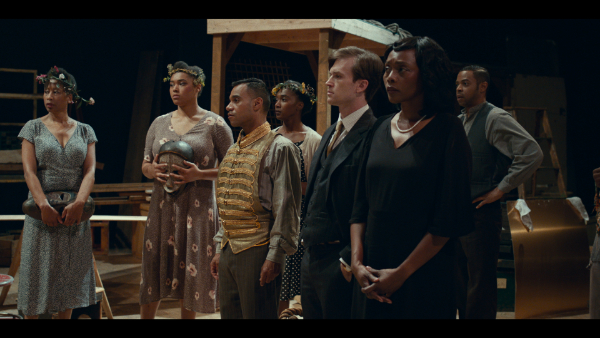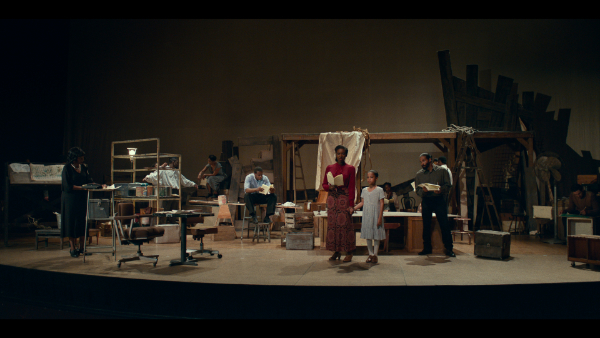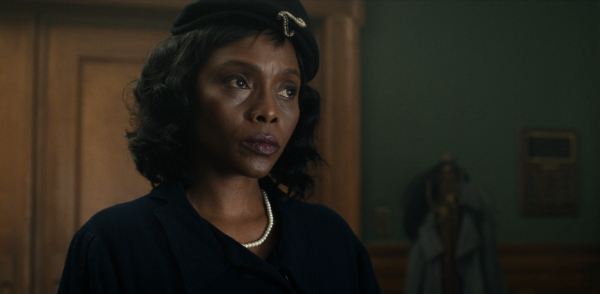There have been many stage performances of Shakespeare's "Macbeth" over the centuries but perhaps none in recent history was as significant as the one at the Lafayette Theater in Harlem in October of 1936.
The new film, Voodoo Macbeth, as the Harlem production came to be called, tells the story of Orson Welles's directorial debut when he was just 20 years old. Best known for his film work, especially 1941's Citizen Kane, personally, Welles considered his work on the 1936 stage production of "Macbeth" to be his most significant lifetime achievement. In an interview with BBC in 1982, Welles said, "By all odds my great success in my life was that play, because the opening night there were five blocks in which all traffic was stopped. You couldn't get near the theater in Harlem."
Spurred on by Franklin D. Roosevelt's New Deal, the Federal Theater Project helped to fund theater in the aftermath of the Great Depression. The Negro Theater Unit, run out of the Lafayette Theater in Harlem, took advantage of the federal funding. Proprietors Rose McClendon (Inger Tudor) and John Houseman (Daniel Kuhlman) approached Orson Welles (Jewell Wilson Bridges), to direct their production of "Macbeth." He declined at first, wondering how the play, set in Scotland would work with an all-black cast. When his wife, Virginia (June Schreiner) suggest he move the setting to Haiti, his creative mind came alive and he agreed to direct.

Cast of "Voodoo Macbeth." © 2022 Lightyear Entertainment. All Rights Reserved.
Problems abounded as Welles tried to get the production off the ground. There weren't enough African-American actors so he held open auditions as well as recruiting night club singer Edna Thomas (Ashli Haynes) and boxer Cuba Johnson (Wrekless Watson). Congressman Martin Dies (Hunter Bodine) abhorred how "unamerican" the voodoo overtones of the production felt and did what he could to cut off funding for the play. People in the community protested.

Ashli Haynes as Edna Thomas in "Voodoo Macbeth." © 2022 Lightyear Entertainment. All Rights Reserved.
Then his star, Rose, got sick. Jack Carter (Gary McDonald), playing Macbeth showed up drunk forcing him to put others into the main roles. When a preview show proved disastrous, it was no wonder that Welles distanced himself from Virginia and everyone else.
Voodoo Macbeth won't go down in film history as the greatest film ever made. Many believe that honor belongs to Citizen Kane, Welles's film masterpiece. Even so, the performances, especially by Bridges and Tudor, pull the audience into the backstage crew and have us rooting for the play to succeed, despite all its challenges.
But the film does tell a story vital to theater history, African-American history, and the contribution of Orson Welles as an artist and storyteller. When the actors were gearing up for opening night, Welles calmed their nerves saying, "They've come to sit in the dark and be told a story. Theater is a campfire and we are like storytellers of old sharing history, tradition, myths."

Inger Tudor as Rose McClendon in "Voodoo Macbeth." © 2022 Lightyear Entertainment. All Rights Reserved.
Part of the movie, a gay subplot that doesn't contribute anything to the main story of the film, is unfortunate and, according to author Michael Anderegg, has little historical grounding.
If you do choose to experience this bit of theatrical and cinematic history, make sure you stay for the credits and see some footage of the original 1936 stage play of "Macbeth."
About the Author
Sister Hosea Rupprecht is a member of the Daughters of St. Paul, a religious community dedicated to evangelization with the media. She holds a Master of Theological Studies degree from the University of St. Michael’s College in Toronto and an MA in Media Literacy from Webster University in St. Louis.
Sr. Hosea is director of the East Coast office of the Pauline Center for Media Studies, based in Staten Island, NY, and speaks on media literacy and faith to catechists, parents, youth, and young adults. Together with Father Chip Hines, she is the co-host of Searchlight, a Catholic movie review show on Catholic TV. Sr. Hosea is the author of How to Watch Movies with Kids: A Values-Based Strategy, released by Pauline Books & Media.
For the past 15 years, she has facilitated various film dialogues for both children and adults, as well as given presentations on integrating culture, faith and media.